7 Key Benefits of Owning Less Stuff for a Simpler Life
Category: Lifestyle
Discover How Owning Less Stuff Transforms Your Life
If you've found yourself overwhelmed by clutter, stressed by constant consumerism, or simply craving a clearer, more intentional lifestyle, you're in the right place. This post is crafted for individuals like you—those eager to understand how owning less can unlock profound benefits without sacrificing joy or comfort. Perhaps you've read about minimalism but felt unsure about what it truly offers beyond tidying up or giving away possessions. Or maybe you've tried downsizing belongings but didn’t experience lasting change.
This guide goes deeper, revealing the diverse advantages of owning fewer things, from enhanced mental clarity to financial freedom and meaningful time savings. Unlike typical decluttering lists, we connect practical benefits with emotional and lifestyle transformations, helping you see why less truly can be more. You'll gain actionable insights to inspire and empower your journey toward simplicity and fulfillment.
Join us as we explore these benefits, supporting your path to a minimalist lifestyle that fosters calm, focus, and joy. Read on to uncover why embracing ownership of less stuff might just be the mindful shift your life has needed.
- Discover How Owning Less Stuff Transforms Your Life
- Mental Clarity and Reduced Stress: How Owning Less Clears Your Mind and Calms Daily Overwhelm
- Financial Freedom and Savings: How Owning Less Unlocks More Value and Meaning
- Enhanced Focus and Productivity: Minimalism as a Catalyst for Efficiency
- More Time for What Matters: Less Stuff, More Life
- Improved Environmental Impact: How Owning Less Helps Protect the Planet
- Increased Freedom and Flexibility: How Owning Less Encourages Mobility and a Lighter Lifestyle
- Deeper Appreciation for What You Have: Cultivating Gratitude and Mindful Consumption Through Minimalism
- Stronger Relationships and Social Connections: Linking Fewer Material Possessions to Richer Human Interactions
Mental Clarity and Reduced Stress: How Owning Less Clears Your Mind and Calms Daily Overwhelm
One of the most powerful yet often overlooked benefits of owning fewer possessions is the mental clarity it fosters. When our living spaces are free from clutter and excess, our brains are no longer bombarded by constant visual distractions and decision fatigue. This simplicity creates a serene environment where focus and creativity can flourish. Studies have shown that cluttered surroundings can increase stress levels and negatively impact our ability to concentrate, making it harder to engage fully with daily tasks or enjoy restful downtime.
By consciously choosing to own less, you reduce the number of choices you need to make about what to wear, where to put things, or how to organize your day. This streamlined lifestyle naturally diminishes feelings of overwhelm. Here’s how owning less contributes to reduced stress and clearer thinking:
- Fewer possessions mean fewer worries about maintenance, cleaning, and organization.
- A minimalist environment supports mindfulness, helping you stay present instead of feeling scattered.
- Simplified routines emerge because you’re not managing excess belongings, freeing up mental space for priorities that truly matter.
- Reduced decision fatigue occurs when daily choices are limited to essentials, leaving your mind refreshed and less drained.
Embracing minimalism doesn't just tidy your home—it declutters your mind. With less physical mess comes less emotional baggage, leading to a calmer, more centered you. This mental freedom is crucial for improving overall well-being and building resilience against the everyday stresses that accumulate unnoticed. If you’ve ever felt overwhelmed by the sheer amount of stuff in your life, reducing possessions can act as a reset button, offering a simple but profound path to peace and clarity.

Image courtesy of Artem Podrez
Financial Freedom and Savings: How Owning Less Unlocks More Value and Meaning
One of the most compelling benefits of owning fewer possessions is the significant financial freedom it provides. When you consciously reduce your consumer habits and focus on buying only what you truly need, you naturally cut down on unnecessary spending. This shift not only helps you save money but also encourages smarter choices about where to invest your resources. Instead of funneling your income into accumulating more stuff, you redirect it toward experiences and opportunities that enrich your life—such as travel, education, personal growth, or quality time with loved ones.
Here’s how owning less can boost your financial health and create lasting value:
- Lower expenses on clothes, gadgets, and home goods due to mindful purchasing habits.
- Reduced costs related to storage, maintenance, and replacements, which often add up unnoticed.
- Less impulse buying, as minimalism fosters an intentional mindset that questions wants versus needs.
- More money available for meaningful experiences that contribute to happiness and well-being rather than temporary satisfaction from possessions.
- Improved ability to save and invest, building a stronger financial foundation for the future.
By embracing minimalism, you adopt a lifestyle that prioritizes quality over quantity, avoiding the trap of consumer debt and the endless cycle of acquiring and discarding. This financial clarity aligns with your broader goals of living simply and purposefully. Ultimately, owning less doesn't mean sacrificing comfort or joy; it means gaining freedom from material distractions and gaining control over how and where your money flows—opening the door to a more fulfilled and financially secure life.
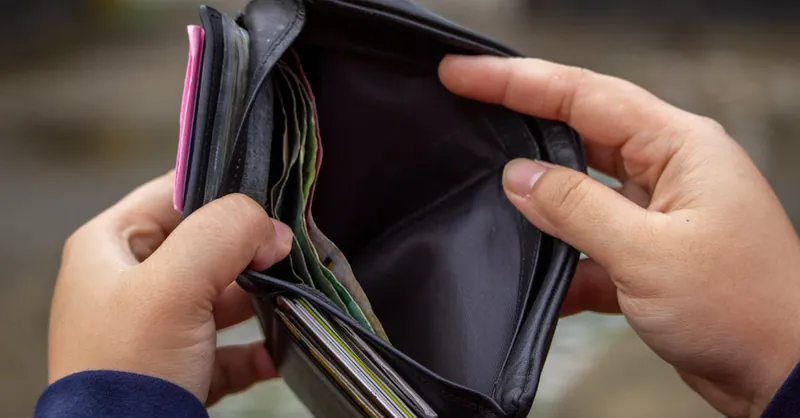
Image courtesy of Ahsanjaya
Enhanced Focus and Productivity: Minimalism as a Catalyst for Efficiency
A cluttered environment often leads to a cluttered mind, making it difficult to focus and be productive. By owning less, you create a minimalist space that naturally reduces distractions, allowing your brain to concentrate on what truly matters. When your surroundings are free from excess possessions, visual noise is minimized, and your attention is no longer pulled in multiple directions. This heightened focus directly translates into improved productivity both at work and in everyday life.
How Minimalism Boosts Efficiency
- Fewer distractions: An environment stripped of non-essential items limits interruptions, helping you maintain sustained attention on tasks.
- Simplified decision-making: Owning less means fewer choices about what to use, wear, or access, reducing decision fatigue and conserving mental energy for important work.
- Streamlined workflows: With fewer belongings, organizing your space and tools becomes easier, saving time and minimizing frustration during daily routines.
- Increased motivation: A clean, orderly environment fosters a sense of calm and control, which encourages proactive habits and goal-oriented behavior.
Minimalism doesn't just improve your workspace aesthetics; it fundamentally enhances the way your brain processes information and manages tasks. In a minimalist setting, your mind can operate with clarity and purpose, making it easier to complete projects efficiently and creatively. This boost in focus is especially valuable in today’s fast-paced world, where distractions are abundant and multitasking often undermines performance.
Embracing fewer possessions empowers you to reclaim your time, energy, and attention—key resources that drive both personal and professional success. If productivity has felt elusive, cultivating a minimalist lifestyle could be the transformative step that sharpens your focus and maximizes your output.
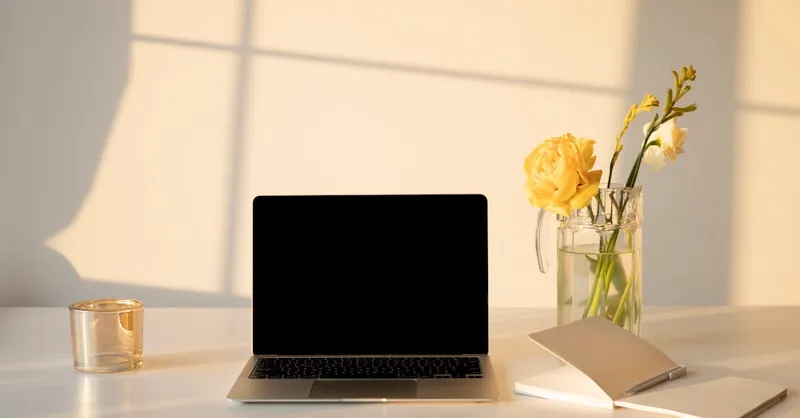
Image courtesy of Anna Nekrashevich
More Time for What Matters: Less Stuff, More Life
One of the most impactful benefits of owning less stuff is the significant amount of time you reclaim—time often lost to the endless cycle of organizing, cleaning, and maintaining belongings. When your possessions are minimal, your daily routines become simpler and more efficient, freeing you from the constant demands of upkeep. Rather than spending hours sorting through clutter, fixing things, or finding space for items, you gain precious moments which can be redirected toward activities that truly enrich your life.
How Owning Less Frees Up Your Time
- Reduced cleaning and tidying: Fewer things mean fewer surfaces to dust, fewer objects to move during cleaning, and less clutter to organize.
- Simplified maintenance: Owning fewer possessions cuts down on repair, replacement, and storage time, making upkeep straightforward and stress-free.
- Less decision-making around belongings: Choosing what to wear, where to place items, or what to keep no longer consumes your mental and physical energy.
- Focus on meaningful activities: With less time dedicated to managing material things, you can invest more in relationships, hobbies, self-care, and personal growth.
By prioritizing quality over quantity, minimalism streamlines your life and safeguards your most valuable resource—time. This liberated time enhances your ability to focus on what really matters, cultivating deeper connections, pursuing passions, and engaging fully with the present moment. Ultimately, owning less leads not only to a decluttered home but also to a life with room to breathe, grow, and thrive.
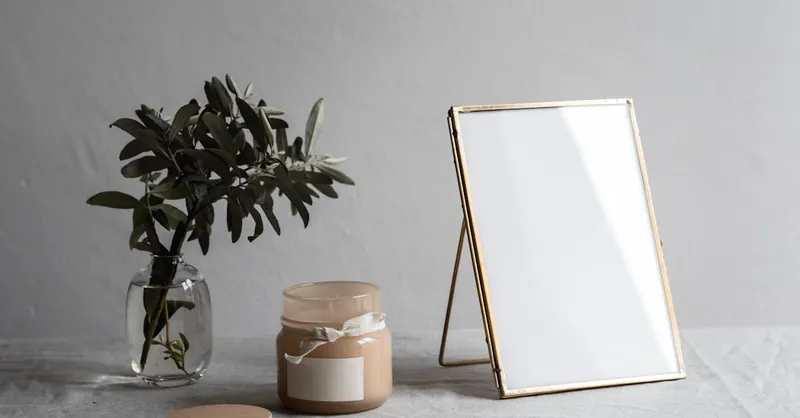
Image courtesy of Polina ⠀
Improved Environmental Impact: How Owning Less Helps Protect the Planet
One of the most compelling benefits of owning less is the positive environmental impact that comes with consuming fewer resources and generating less waste. In today’s world, where climate change and pollution are pressing global issues, embracing minimalism is not only a lifestyle choice but also a meaningful way to reduce your ecological footprint. When you buy less and prioritize quality over quantity, you contribute to lowering demand for manufacturing and raw material extraction—two major contributors to deforestation, greenhouse gas emissions, and habitat destruction.
Key Ecological Advantages of Consuming Less
- Reduction in carbon footprint: Less consumption means fewer products need to be produced, packaged, and transported, all activities that release carbon dioxide and other pollutants.
- Waste minimization: Owning fewer items significantly cuts down on landfill waste, as there are fewer possessions to discard, recycle, or replace.
- Conservation of natural resources: By resisting the urge to constantly buy new things, you help preserve water, minerals, and energy used in manufacturing processes.
- Encouragement of sustainable habits: Minimalism often aligns with choosing eco-friendly alternatives, such as durable, repairable, or secondhand products, which further lessen environmental strain.
- Reduced plastic usage: Fewer consumer goods typically mean less packaging waste, particularly plastic, which is a major pollutant in oceans and ecosystems.
Adopting a minimalist lifestyle not only simplifies your life but also fosters environmental mindfulness. This conscious approach to consumption empowers you to make choices that support a healthier planet—for yourself and future generations. By owning less, you become part of a growing movement that values sustainability, ethical purchasing, and responsible resource use, ultimately contributing to a cleaner, greener world.

Image courtesy of cottonbro studio
Increased Freedom and Flexibility: How Owning Less Encourages Mobility and a Lighter Lifestyle
One of the most liberating benefits of owning fewer possessions is the increased freedom and flexibility it brings to your daily life. When you’re not weighed down by excessive belongings, you gain the ability to move more easily, embrace spontaneity, and adapt quickly to new opportunities or changes. This lighter lifestyle empowers you to prioritize experiences over things, shifting your focus toward living fully in the moment rather than being tethered to material accumulation.
How Owning Less Fuels Mobility and Spontaneity
- Simplified moving and travel: Fewer possessions mean packing is easier and less time-consuming, enabling you to travel more frequently or relocate without stress. This is especially valuable for those seeking remote work opportunities or who desire a nomadic lifestyle.
- Increased adaptability: A minimalist mindset cultivates openness to change because you’re less attached to physical items. Whether it’s a career shift, a move to a new city, or embracing unforeseen adventures, owning less allows for seamless transitions.
- Reduced emotional and physical baggage: Shedding clutter not only lightens your physical load but also frees you from the mental weight of maintaining and worrying about possessions. This makes it easier to take risks and seize new experiences.
- Enhanced spontaneity and joy: With fewer commitments tied to material things, you can say yes more readily to unexpected opportunities—be it a weekend getaway, trying a new hobby, or reconnecting with friends.
By embracing minimalism, you create a life unburdened by excess, where mobility and flexibility are not just possible but natural. This elevated sense of freedom nurtures a lifestyle aligned with your true values, allowing you to pursue what matters most without being anchored by the unnecessary. In a world that often demands constant busyness and possessions, owning less is a powerful reminder that freedom is found in simplicity and the ability to flow with life’s changes effortlessly.
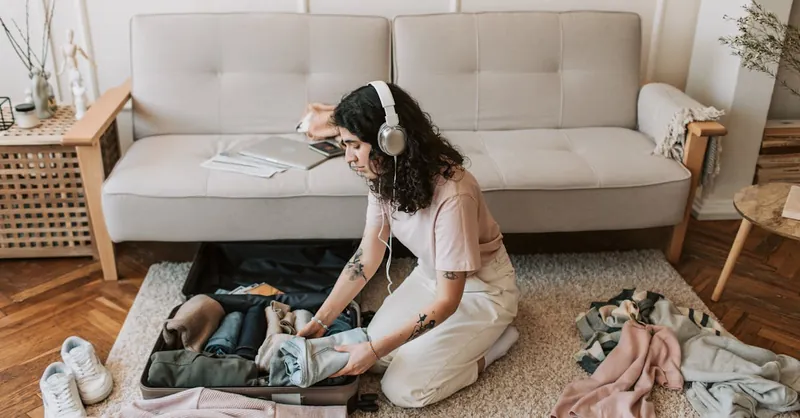
Image courtesy of Vlada Karpovich
Deeper Appreciation for What You Have: Cultivating Gratitude and Mindful Consumption Through Minimalism
Owning less encourages a profound deeper appreciation for what you already have, shifting your mindset from chasing new possessions to valuing existing belongings and experiences. Minimalism cultivates gratitude by helping you recognize the true worth of your items, rather than taking them for granted or constantly seeking more. This mindful approach to consumption transforms the way you view material things—no longer as sources of temporary satisfaction but as meaningful parts of a simpler, more intentional life.
How Minimalism Fosters Gratitude and Mindfulness
- Enhanced awareness of needs versus wants: By limiting your possessions, you become more intentional about future purchases, carefully considering whether something adds genuine value rather than satisfying impulsive desires.
- Greater contentment with essentials: When you surround yourself only with items that serve a purpose or bring joy, each possession feels more special, nurturing a sense of satisfaction and reducing the allure of endless consumerism.
- Mindful consumption habits: Minimalism encourages slowing down and reflecting before acquiring new things, which leads to reducing waste and unnecessary clutter while promoting sustainable, ethical purchasing decisions.
- Shift from materialism to experience: By owning less, you naturally place higher importance on intangible aspects of life—relationships, personal growth, and moments of joy—which build lasting happiness beyond material goods.
This mindful contentment sparks a gratitude loop, where valuing what you have strengthens your ability to resist overconsumption and embrace a simpler, more fulfilling lifestyle. Rather than feeling deprived, embracing minimalism opens up space for meaningful appreciation, helping you live with intention and joy every day. Ultimately, this deeper appreciation not only supports emotional well-being but also aligns perfectly with sustainable living, making your minimalist journey both heart-centered and impactful.
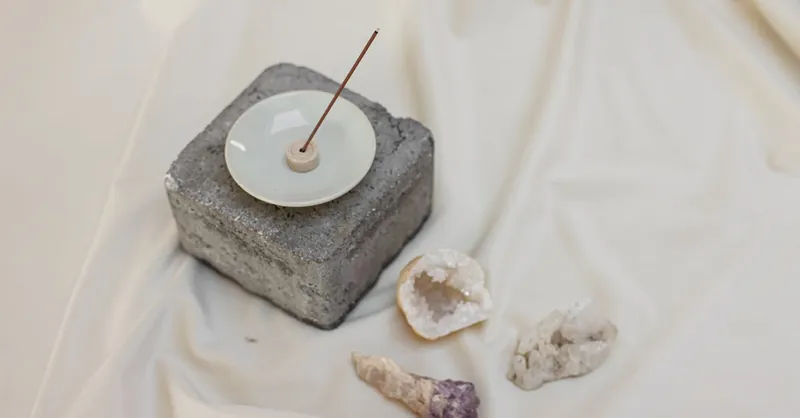
Image courtesy of Cup of Couple
Stronger Relationships and Social Connections: Linking Fewer Material Possessions to Richer Human Interactions
Owning less not only simplifies your environment and daily routine but also profoundly strengthens your relationships and social connections. When you reduce the focus on material possessions, you shift your attention from things to people, cultivating deeper and more meaningful interactions. Without the distraction of accumulating and maintaining excess stuff, you naturally create more emotional space and time to engage authentically with family, friends, and your community.
How Minimalism Enhances Human Connections
- More quality time together: With fewer belongings to care for and organize, you free up valuable time to invest in shared experiences, meaningful conversations, and activities that build lasting bonds.
- Focus on presence and mindfulness: Minimalism encourages living in the moment, which means you’re more available and attentive during social interactions, improving communication and empathy.
- Reduced social comparison: Letting go of consumer-driven status symbols lowers the pressure to impress others through possessions, fostering genuine relationships based on personality and shared values rather than material wealth.
- Encouragement of experiences over things: Prioritizing outings, travel, and shared adventures instead of buying gifts or goods promotes stronger emotional connections and memorable moments.
- Simplified hosting and sharing: A minimalist household easily accommodates guests without overwhelm, making socializing more inviting and stress-free.
By embracing owning less, you create a lifestyle that values people over possessions, allowing your relationships to flourish in a clutter-free, intentional space. This shift leads to richer, more authentic connections that contribute to long-term happiness and social well-being—key components often overlooked in consumer-centered lives. Ultimately, minimalism acts as a powerful catalyst for building a supportive community and deepening bonds, proving that less stuff really does mean more love and connection.
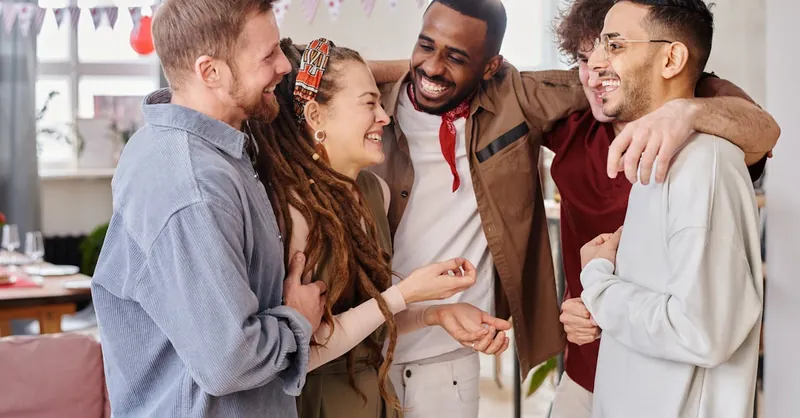
Image courtesy of Cedric Fauntleroy
